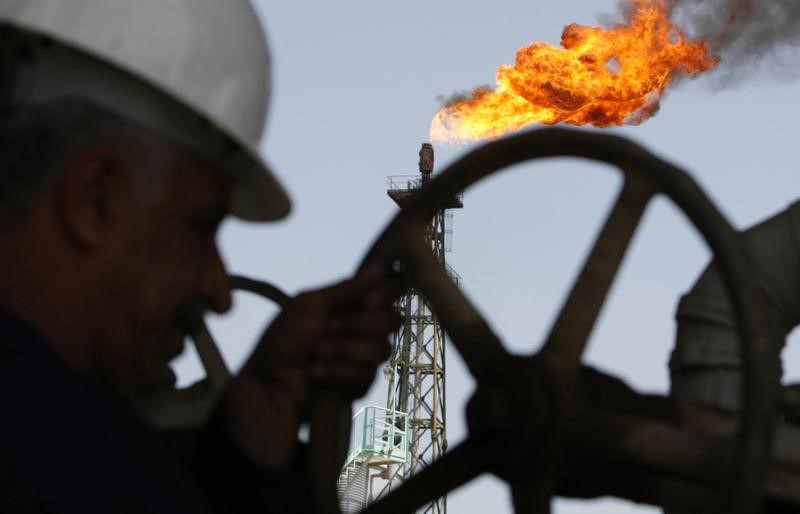EUR/USD likely to find a peak near 1.25: UBS
* Oil prices fall as Russia-Saudi Arabia reach impasse on
supply
* British pound skids as PM Johnson admitted in hospital
* Equity investors focus on slowdown in COVID-19 death rate
By Swati Pandey
SYDNEY, April 6 (Reuters) - Oil prices skidded on Monday
after Saudi-Russian negotiations to cut output were delayed,
keeping oversupply concerns alive, while stocks jumped as
investors were encouraged by a slowdown in coronavirus-related
deaths and new cases.
In currency markets, sterling GBP= fell after British
Prime Minister was admitted to hospital following persistent
coronavirus symptoms as the pandemic rapidly spreads.
Brent crude LCOc1 fell as much as $3 in early Asian
trading after Saudi Arabia and Russia postponed a meeting over a
potential pact to cut production to Thursday. O/R
Analysts said the news could lead to some sell-off in
currency markets too.
Also weighing on the pound were fears other senior
government officials who were in the same briefing as Prime
Minister Boris Johnson could be affected by the virus, said Karl
Schamotta, chief market strategist at Cambridge Global Payments
in Toronto, Canada.
The pound fell 0.4% in early trade on Monday in a knee-jerk
reaction and was last down 0.3% at $1.2222.
"It is stating the obvious to say the viral outbreak and the
containment measures to fight it are central to market action,"
said Michael McCarthy, chief market strategist at CMC Markets.
Indeed, equity investors looked at the positives with major
European nations including France and Italy reporting lower
fatality rates.
U.S. stock futures ESc1 jumped more than 1.5% in early
Asian trading on Monday after U.S. President Donald Trump
expressed hope the country was seeing a "levelling off" of the
coronavirus crisis. The gains came despite New York Governor Andrew Cuomo
cautioning that it was not yet clear whether the crisis in the
state had reached a plateau. Investors took solace from the fact that COVID-19 cases
appeared to be reaching a peak in Europe with Italy seeing the
number of patients in intensive care falling for the second
consecutive day.
In Asia, Australia's benchmark index .AXJO added 0.5%,
Japan's Nikkei was up 0.2% .N225 while South Korea's KOSPI
index .KS11 climbed 1.4%.
That left MSCI's broadest index of Asian shares outside of
Japan .MIAPJ0000PUS up 0.1%. China markets were closed for a
public holiday.
"Focus in markets will now turn to the path out of lockdown
and to what extent containment measures can be lifted without
risking a second wave of infections," National Australia Bank
analyst Tapas Strickland wrote in a note.
"Key to a strong rebound in China will be the ongoing
lifting of containment measures with Wuhan – the epicentre of
the outbreak – set to lift containment measures on April 8."
Strickland, however, noted many in China were still subject
to social distancing and isolation restrictions to prevent a
resurgence in infections.
The pandemic has claimed more than 64,000 deaths as it
further exploded in the United States and the death toll climbed
in Spain and Italy, according to a Reuters tally. Concerns about heavy damage to the global economy have
pushed investors into the perceived safety of government bonds
where yields are at or near all-time lows. US/
Elsewhere in currencies, the dollar was up a touch against
the yen at 108.58. JPY= . The euro EUR= was barely moved at
$1.0803 while the risk sensitive Australian dollar AUD=D3 was
up 0.2% at $0.6004.
In commodities, Brent crude futures LCOc1 slipped 6.2%, or
$2.13, to $31.98 a barrel while U.S. crude CLc1 dived 7.4%, or
$2.12, to $26.12. O/R
Spot gold XAU= was down 0.2% at $1,612.9 an ounce.
<^^^^^^^^^^^^^^^^^^^^^^^^^^^^^^^^^^^^^^^^^^^^^^^^^^^^^^^^^^^
Asia stock markets https://tmsnrt.rs/2zpUAr4
Asia-Pacific valuations https://tmsnrt.rs/2Dr2BQA
^^^^^^^^^^^^^^^^^^^^^^^^^^^^^^^^^^^^^^^^^^^^^^^^^^^^^^^^^^^>
(Editing by Sam Holmes)
